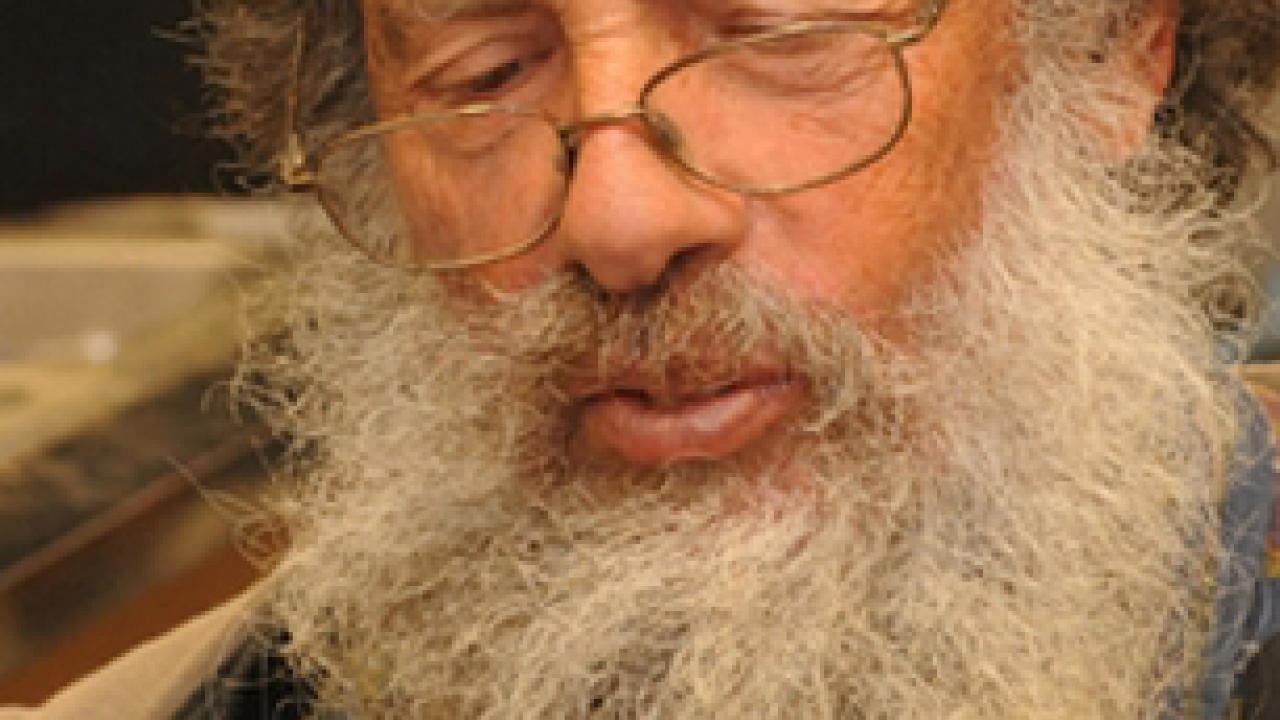He did it again. Professor Arthur Shapiro snagged the first cabbage white butterfly of the year and won his own beer-for-a-butterfly contest — as he usually does. He snagged the Pieris rapae on Jan. 8, the second earliest catch date in the contest’s 40-year history.
Shapiro, a distinguished professor in the Department of Evolution and Ecology, sponsors the contest to aid in his studies of biological response to climate change. He said the cabbage white is emerging in this region a week or so earlier on average than it did 30 years ago.
Shapiro's graduate students are routinely his fiercest competitors in the cabbage white contest, but he estimated that he has won all but four times over four decades. He emerged victorious this year in West Sacramento (the contest covers Yolo, Sacramento and Solano counties), snagging a newly emerged male at 11:50 a.m. Sunday when the sky was hazy and the temperature was 60.
The earliest catch ever came in 1990, on Jan. 4 (after the late fall brood carried over without interruption into the first week of January).
The 2012 first catch apparently was not a carryover from the late fall brood, according to Shapiro, who said the early date reflects “the extraordinary sunny and dry weather that has persisted all winter, with warm afternoons, frosty nights, and little cloudiness or fog.”
“There have been numerous high-temperature records set in northern California, both in the valleys and in the Sierra Nevada, “ Shapiro said. “The abnormal conditions cannot be linked causally to global warming but are related somehow to the current La Nina, now in its second year.”
As the contest winner, Shapiro could save his money and skip the prize of a pitcher of beer — but he immediately announced that he would take his graduate students and their significant others out for beers to celebrate.
And, speaking of insects …
The Bohart Museum of Entomology presents its first open house of 2012 with a program titled, appropriately, “A New Year, A New Bug: How Insects Are Discovered.”
The open house, free and open to the public, is scheduled from 1 to 4 p.m. Saturday (Jan. 14). The museum, which houses more than 7 million specimens from around the world, is in 1124 Academic Surge.
“Visitors will be able to learn how insects are discovered, described, drawn and even named,” said Tabatha Yang, education and outreach coordinator.
Not all the museum’s critters are dead. A "petting zoo” features Madagascar hissing cockroaches, tarantulas, scorpions, a millipede and six kinds of walking sticks.
Media Resources
Dave Jones, Dateline, 530-752-6556, dljones@ucdavis.edu
